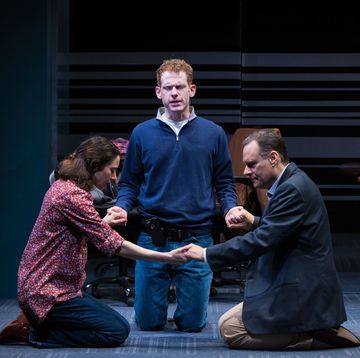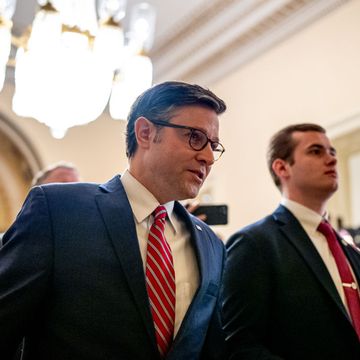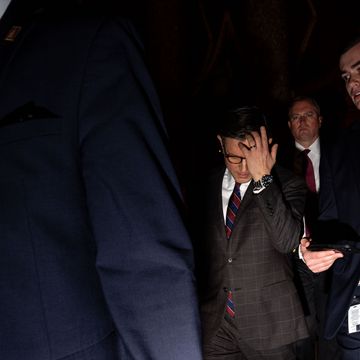Why was President Obama crying when he gave his press conference about the Newtown massacre of twenty innocent children? My hope is that he was crying out of shame. Because if he was crying because the children of Newtown are "our children" and this is a "tragedy," if he was crying out of some worked-up sentimental empathy, then forget him. Really. The children of Newtown are not our children, not yours or mine or President Obama's. My children and your children and Obama's children are alive right now. The children who are dead were the children of real parents, and their suffering is not ours. It belongs entirely to them and it is unimaginable.
Already, only a couple days after the massacre, the battle lines over how the story of this massacre is going to be told have been drawn up. On the one hand, there is the left — clearly emboldened by Obama's victory and a Republican party in disarray — who want to make the massacre an opportunity to put gun control back on the table as an issue. Since Clinton, the American left has more or less abandoned guns. And for a very simple reason: It's a loser. That hasn't changed. Gun control will still be a political loser a month from now, no matter what anyone says. You can blame the NRA as much as you want, but they are not some nefarious conspiracy. They are so successful because ordinary Americans believe what they promote. Their fundraising efforts, when all is said and done, are not nearly as significant as the pressure they can exert by simply pointing out an anti-gun position by a given candidate.
The right — at this moment essentially identified by Fox News — has whipped its own phony outrage about not politicizing the tragedy. "Tragedy" is a very important word here, and we have to be super-careful about how we use it. Because how America describes the massacre will determine what America does about the massacre. Tragedy, even in common speech, means an exceptional and significant death. Those adjectives do not apply to Newtown. Mother Jones has the most incredible list of America mass murders here. What it describes is a new reality, which is simply this: Mass murder has become an ordinary part of American life. The horror of the Newtown massacre is that it's not a tragedy. It's not exceptional. And most likely it's not significant. Americans have known for decades now that the availability of automatic weapons to psychotics is widespread. Their response? Illinois this week was the last state in the Union to pass a conceal-carry law.
Calling the massacre a tragedy makes everybody feel better. It purges the emotions. It lets out the rage that this horror causes deep in our souls. But it solves nothing. Obama should weep, but he shouldn't weep for those children. He should weep from disgrace at being the most important policy-maker in the country during a time when mass slaughter became so common it barely constituted a surprise anymore. Let me tell you a story that is going to happen next year. In 2013, at some point, a young man with severe mental health issues is going to find a way to access automatic weapons legally. He is going to go into a public place, and he is going to massacre many, many innocent people. Are we going to call that a tragedy, too? Is President Obama going to weep for them, too?
Newtown wasn't a tragedy; Newtown was a policy decision. We can do nothing for the children who are dead; weeping for them like they're our own is partly ridiculous, and partly obscene. What's even more ridiculous and obscene is not preparing for the next one. What's needed now isn't warmhearted empathy; it's cold-blooded reason. America needs its leaders to look at the numbers of mass murders, look at the most effective policies for reducing mass murder, and apply those policies. And if they don't do that, the blood of the next batch of children is on their heads. Bloomberg gave a statement, too, but he didn't cry. He didn't talk about "our children." Instead, he spoke about specific policies that work to curb gun violence. Bloomberg doesn't need to cry. He's doing his job.
Follow The Culture Blog on RSS and on Twitter at @ESQCulture.













